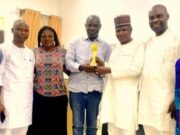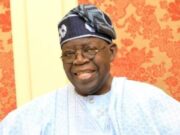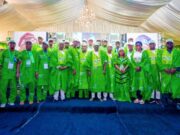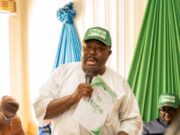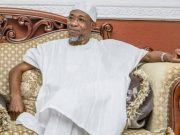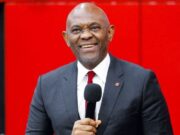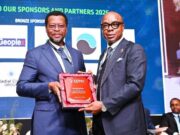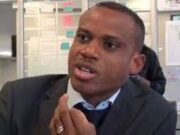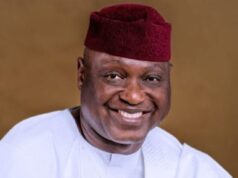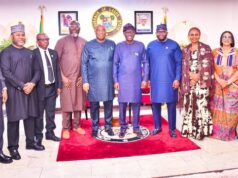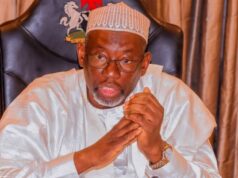The Chairman of the Economic and Financial Crimes Commission (EFCC), Ola Olukoyede, has blamed the country’s inconsistent power supply on corruption within the power sector.
Olukoyede revealed that the findings from the commission’s investigations would deeply sadden Nigerians if made public.
During a visit from the House Committee on Anti-Corruption and Financial Crimes in Abuja on Tuesday, Olukoyede expressed concern that contractors awarded projects to supply electrical equipment frequently choose substandard materials.
He explained that this practice is a key contributor to frequent equipment breakdowns, power outages, and grid collapses.
Olukoyede said: “As I am talking to you now, we are grappling with electricity. If you see some of the investigations we are carrying out within the power sector, you will shed tears. People who were awarded contracts to supply electrical equipment, instead of using what they call 9.0 gauge, would go and buy 5.0.
“So every time, you see it tripping off, getting burnt, and all of that. It falters, and it collapses. This is part of our problems.”
Olukoyede also revealed that the commission’s investigations had uncovered that, over the past 20 years, the implementation and execution of capital projects in the country had not surpassed 20 percent.
He emphasised that under such conditions, the country would be unable to achieve significant infrastructural or other forms of growth.
Olukoyede said, “We discovered that in the last 15 to 20 years, we have not achieved up to 20% of our capital project implementation and execution. And if we don’t do that, how can we expect infrastructural development? How can we grow as a nation? So our mandate this year is to work with that directorate and with the National Assembly to see if we can reach 50% of capital project execution for the year.
“If we achieve 50%, we will be fine as a nation. The lack of implementation of the capital budget is one of Nigeria’s major problems. And if we tackle that effectively, we will make progress as a nation. We are doing everything possible to prevent that, with your support.”
The anti-graft chief stated that the commission had received more than 17,000 petitions and is currently investigating over 20,000 cases.
He said: “We have several cases filed in court, apart from those with convictions, reaching thousands. In the last year, we have received over 17,000 petitions in the EFCC. And currently, as I am speaking, we are investigating over 20,000 cases.
“Between last October and now, we have opened over 4,800 new cases. And what is our staff count? We are less than 5,000. Now, with the additional responsibility of over 700 MDAs, 36 states, 774 local governments, and all of that.”
The Chairman of the committee, Obinna Onwusibe, urged the EFCC to work closely with the judiciary to speed up the trials of suspects and reduce the number of inmates awaiting trial.
Onwusibe said: “Recently, during oversight visits to the maximum and minimum correctional centres in Kirikiri, Lagos State, numerous suspects have been awaiting trial for over a year, yet we are all familiar with the saying that justice delayed is justice denied.
“It is on this note that we call on the EFCC, the Attorney General of the Federation, and the judiciary to collaborate and ensure the administration of criminal justice functions effectively and efficiently to deliver justice to victims and society.”
He also called on the EFCC to uphold transparency and accountability in its operations, stressing the importance of maintaining public trust.
“The negative narrative circulating in some quarters that the Agency is often used to settle political scores must be proven incorrect and inappropriate by the EFCC.”
Credit: thenationonlineng.net


















